(Comrade Aleks brings us this interview (with music) of the Italian doom band Premarone.)
Sometimes I start to think that I’m the best friend of Italian doom bands! Though sometimes I think the same about Russian, French, or Peruvian bands – depends on different periods. As some of our readers know – the Italian doom scene has deep roots in retro psychedelic rock and often has a lot of common elements with old-fashioned horror movies. It’s a kind of trademark, but it’s not a rule. I like to find exceptions to rules as well as confirmations when they are cool ones.
It’s hard to describe what Premarone is… They have a pretty original opinion on the questions about how doom music should sound. They have these doom riffs and some old-school arrangements with all their tastiness, and yet at the same time they practice a punk approach to it and don’t limit themselves in their experimentations. And Premarone released their first full-length Obscuris Vera Involvens in January 2015. It’s worth a listen, and that’s why we’ve done this interview with Alessandro Lugano (drums) and other seigniors of Premarone’s collective mind.
******
Let us start with a question about Premarone’s origin — how was it started?
Premarone was born about five years ago on the initiative of three friends. Knowing that every one of us played a different musical instrument and had some previous experience in little bands, we decided to try and play together: Since we immediately found a good harmony, we got into in what we were doing, but it was mostly when the fourth element joined the band, after some time, that we reached the right balance for the definition of our sound. Since we hadn’t yet chosen a name for the band, we decided to use the name of the place where we usually rehearse, a little village inhabited by seven people, in the middle of nowhere on the hills of North Italy.
What’s the band’s line-up now? What is your musical background?
Since its birth, the band is formed by Fra (guitar and voice), Pol (bass), Mic (keyboards, theremin, monotron), Ale (drums). We are all music lovers, but every one of us has different musical tastes, ranging from ’70s hard rock and progressive to ’80s heavy metal, grunge, stoner, punk, and hardcore, and even reaching to some singer-songwriter artists. Certainly, we all appreciate doom and its sub-genres. The interesting thing is that, despite the differences in our musical tastes, we found quite quickly the right musical dimension which we think is essential for the originality of our sound.
The base of your music is doom metal, but of a pretty original sort. What do you take from this genre?
We love doom’s gloomy sounds, the slow and heavy rhythms, the dark, mysterious and unsettling mood that we try to fit inside visionary and obsessive structures typical of psychedelic music. To be more precise, we can mention some famous bands that we appreciate and that inevitably influenced and inspired us, for example: Sleep, Electric Wizard, Yob, Cathedral, or the Italian Ufomammut, in addition to the great classics of the genre like Black Sabbath, Pentagram, and Saint Vitus, and without forgetting the beautiful musical hallucinations of the ’70s legends like Hawkwind, Pink Floyd, or High Tide.
Premarone “La Pitonessa”
The conception of Obscuris Vera Involvens is out of the ordinary, too. What inspired you to write such lyrics?
We like to talk about the reality that surrounds us. The key of interpretation that we adopt consists in portraying the decadence of modern society and of its myths and symbols, which are part of a constant discussion with the past, more or less recent, through a network of relationships. From there comes the feeling of the apocalypse and of a traumatic conclusion of a cosmic cycle waiting, perhaps, for a new era. From this point of view, even if our lyrics lack a real intention for social criticism, we share a certain desecrating and provocative punk attitude that we think is evident also in Fra’s singing, which, with typical aspects of acting and declamatory tones, is a tribute to Giovanni Lindo Ferretti, the voice of CCCP, the most famous Italian punk band of the ’80s.
Okay, now I see from where you get this declamatory vocal style. Does punk music really affect you so strongly?
Frankly, we cannot say how much punk influenced our sound. However, as we said earlier, this cultural movement inspired us mostly in an attitudinal way and in how we think about music. If you analyse the structure of the composition of our songs, you can realize that the major influence is that of other genres like doom, psychedelia, and progressive, just by looking at the length of our songs and the kind of sounds we use.
What do you think about doom metal lyrical clichés? Do you avoid them wittingly?
We think that they are in fact abused clichés and often emptied of a real meaning, but still used because the genre requires it. This doesn’t mean that we dislike some subjects, in which, on the contrary, we are interested: We all are, or have been, readers of the great masterpieces of horror and Gothic literature of the 19th and 20th centuries that undeniably influenced in a decisive way doom and metal in general with its themes and its rich collection of vampires, witchcraft, satanic rituals, and catacomb situations. The truth is that in writing our lyrics we are mainly drawn and inspired by other ideas that stimulate us more, and that, even if they show our essentially materialistic view of history and reality, seem to have an aura of esoteric mysticism.
What meaning did you put in the album’s title?
The album title is a quote from the Aeneid, the epic poem written by the Latin poet Virgil in the first century BC that tells the adventures of the Trojan hero Aeneas and celebrates the birth of the Roman lineage. In the sixth book, Aeneas lands in southern Italy and goes to the cave of the Sybil, Apollo’s priestess, who, in a trance state, prophesies to the hero a fate of war and pain “obscuris vera involvens”, that is by masking the truth with obscure and unclear words. This is what we try to do, in our own small way, through our songs, describing reality by means of symbols, metaphors, allegories, and visionary images.
And do your listeners, friends, or relatives get you?
Few appreciate us, our friends tolerate us, our wives bear with us.
How did you work over Obscuris Vera Involvens?
For the album composition we adopted a very simple way to work that we usually use to write our songs: We don’t follow some prefixed method, but everything originates quite naturally and spontaneously; often someone proposes a riff or a harmonic structure that, if we think it sounds good, gets expanded, developed and inserted in a bigger context; we usually think a lot about the lyrics, but generally we write them after the music and we adapt them to it. Often we get inspiration even from a single suggestion, from a concept that fascinates us and that we try to translate in music.
To give you an example, we got recently into German Oak, a cult German band that in 1972 recorded its first LP, an obscure concept-album on World War II composed by long and dark instrumental jam sessions with a good dose of psychedelia. Listening to that record got us so impressed and involved that we decided to use a similar idea, aiming to go back over the last twenty years of Italian history. Therefore, we started working on a new project that is taking shape and that will be called Das Volk der Freiheit.
As for the production and post-production phases of the recording, we worked in a completely independent way, using the tools at our disposal: As we said earlier, we cannot hide our punk soul, therefore we support the DIY philosophy!
Please tell the story of one of the songs from this album.
All right, we’ll tell you how “Fallobate” was born. The title comes from the term used by the ancient Greeks to identify the followers of the Syrian goddess Atargatis, who meditated for a long time on the top of phallic columns. When we started writing this song, we had in mind something direct and tribal that could evoke the atmosphere of an archaic ritual, but the structure gained more complexity little by little.
An interesting detail is that we realized, while instinctively developing some ideas, that every section of the song appeared to be connected by the same theme: After the representation of a spectacular ascent followed the description of a disastrous fall, from that of the Byzantine Empire to that of the poor Franz Reichelt, the Austrian tailor who in 1912 threw himself from Tour Effel after building a sort of parachute with which he believed he could fly, or that of Pentheus, the Greek mythological king who, after climbing on top of a fir to spy on the secret rituals of the female followers of Dionysus, was captured by them and torn to shreds.
To tell the truth, initially “Fallobate” also included a line written for us by our great friend Ezio, in which were present some verses dedicated to Milingo, the African cardinal who was excommunicated in 2006 by the pope for heresy. But since this part fell thematically outside of the rest of the song, we decided to expunge it even though we could develop it in the future inside a new piece. Ultimately, this is the composition on which we worked most hard, and we are really proud of it.
Premarone “Fallobate”
You have song named “Stalingrado”. It’s the name of the Russian city (nowadays Volgograd) and it was one of largest battlefields in the Eastern Front of World War II. What’s the idea of this song?
Actually, the song doesn’t really speak about Russia. The references to Russian historical events or figures of the past century are used at a symbolic level to start an observation on the reality we are living today, perhaps in the world, but certainly in Italy. In particular, the city of Stalingrad becomes the symbol of a fight for an ideal redemption, even better, a redemption that moves from an ideal that can overcome the individualistic and often sterile tendencies that, in our opinion, characterize the contemporary society.
So, for example, it must be read in this respect also the reference to the five-year production plans which, despite having engendered paradoxical or dramatic situations, represent an attempt to overcome the egoism of the individual. Furthermore, we like to use the icons of that period, as it is clear from our logo or from our album presentation video, because we believe that certain ideals, however right or wrong, widespread in Italy since the postwar era and deduced from the Soviet model, have deeply influenced Italian society and politics, thanks to a series of symbol-personalities that also entered into the imagination of our country in that period (like for example Gagarin), and which didn’t represent themselves, but rather the ideal that made their actions possible. So these cues are functional for us as an implicit confrontation with Western society today where the so-called ideals, whatever their political or social orientation, seem to be choked by the immediate search for profit.
Do you have some sketches for the next record?
We have a lot of material on which we are currently working. As we already said, in this moment we are committed to a project centered thematically on the analysis of the last twenty years of Italian history, without a doubt the most controversial (until now) of the republican period: It is a suite made up of different, more or less short, movements that in our opinion represent a positive evolution of the band’s style towards a more granitic sound that, as usual, keeps moving in doom’s territory. At the same time, we are also trying to complete another quite ambitious composition on which we have been working for some time: a monolithic piece with a hypnotic and distressing pace, in other words something heavier than everything Premarone has ever done! During the summer we will start recording and we hope to finish within the year.
Comrade, here I would like to return to the question of how people welcome your music. Aren’t you afraid to scare doom-listeners with your punk / social approach within Premarone? And don’t you think that at the same time you might not attract attention from another kind of listener due to your doom roots? I believe that we can discuss the last record of Doctor Cyclops, Oscuropasso, which spoke about social / political problems with metaphors yet sounded like some extravagant doom!
Without doubt, there is that risk, but honestly we were never concerned with that problem! Everything we do is born in a really instinctive way, so we never thought about changing our sound to try and please a couple more people. We realize that it’s a behaviour that could prove not very productive, but coherently with the spirit that animates Premarone since our birth, we think that first of all it’s fundamental to follow our choices with deep belief and to try to fulfil the ideas we have in our minds.
About Doctor Cyclops, we know them well and we like them a lot! They are one of the most active Italian bands, and in our opinion their mix of doom and ’70s heavy rock is extraordinary; besides, they are great live. It’s true, we also think that the lyrics of Oscuropasso are full of allusions and images about the decadence of a humanity sunken in the satisfaction of its most vicious habits, but that takes us to the starting question: Is it necessary that doom focuses only on certain types of themes?
We think that this belief derives from the definition, year after year, of musical stereotypes originated from the sclerotization of the various genres in closed categories; if we think about the compositional freshness of the ’70s, we can see that many boundaries that we consider today to be almost insuperable were then a lot more feeble. To better clarify the concept, think about Black Sabbath, universally believed to be the fathers of doom’s great family: Isn’t it true that famous songs like “War Pigs”, “Children of the Grave”, or “Into the Void” deal distinctly with social or even ecological-environmental subjects of major interest?
How do you see perspectives for the band? How far do your ambitions spread?
For now, our main objective is to fulfill the projects we spoke about earlier and in which we believe a lot. Perspectives… We’ll see! At present, we are trying to promote our record and to play live at every opportunity. It would be nice to organize a tour, but it’s not that easy for us because we are no longer twenty years old (and for at least half the band, thirty years old), so it’s hard to arrange such a task with each other’s jobs, even though we don’t rule out anything.
What was your favorite book when you went to school?
It’s hard to tell just one book, however we’ll try. Here’s a title from each of us:
– Ale: E. A. Poe — Tales
– Fra: Petronius — Satyricon
– Mic: D. Hofstadter — Gödel, Escher, Bach
– Pol: G. Orwell, 1984
What are some positive and negative aspects of living in Italy?
Well… We don’t know. Positive aspect: you know the Italian language a bit better than others, the Italian cuisine, the artistic heritage, the temperate climate, “Italians good people” (it’s the Italian title, which became proverbial, of a famous 1965 film that follows Italian solders in URSS during World War II); negative aspects: knowing Italian is not that useful, the food makes you fat, you have to pay even to enter a church, the climate is getting tropicalized due to global warming, the Italian society, completely disintegrated and lacking points of reference, stands out for its high levels of corruption and for the spreading of organized crime at all levels.
Beside this, if we want to bring back the discussion on musical themes and take a look at the situation in which Italian bands are living, there’s little to say: 90% of the population listen to shitty music, don’t buy records, and don’t go to concerts, so it’s really hard for a band to grow and emerge, even though there are lots of great musicians whose names are too many to list them all.
Thank you for this interview mate! I hope that we’ll hear more about Premarone soon. Do you have something else to say to our readers?
Thanks to you Aleks! It has really been a great pleasure, we hope to hear from you soon. We say goodbye to you with the words of a great poet that we love a lot:
Listen!
If stars are lit,
It means there is someone who needs it?
https://www.facebook.com/premaroneband
http://premarone.bandcamp.com/album/obscuris-vera-involvens

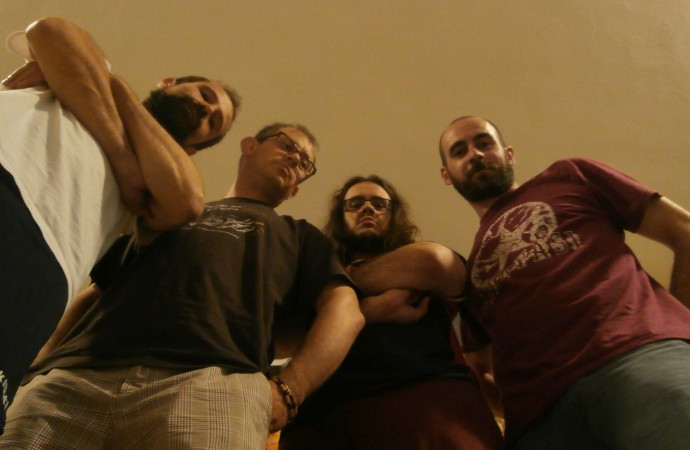
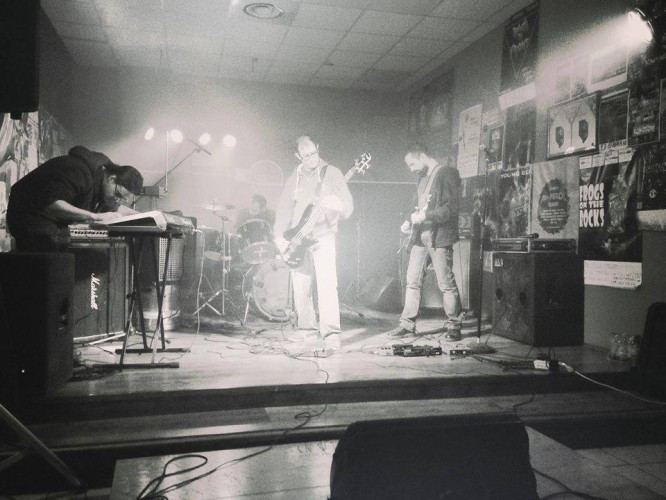
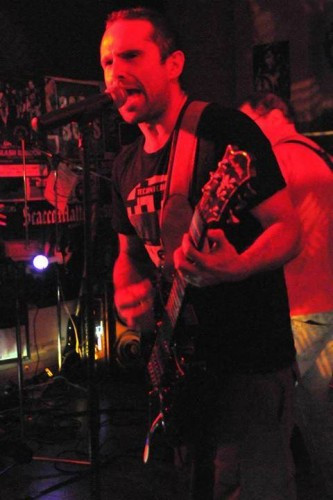
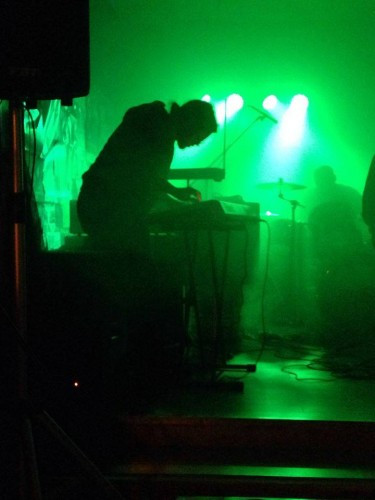
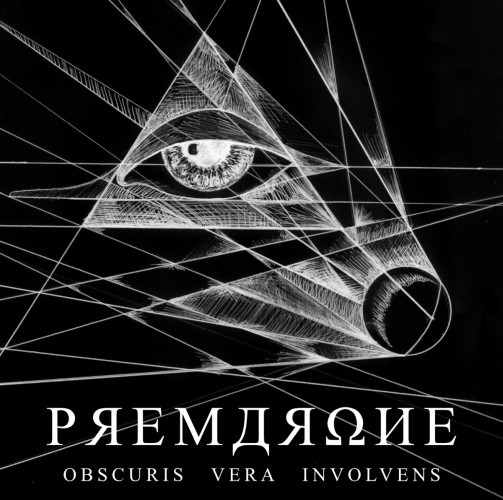
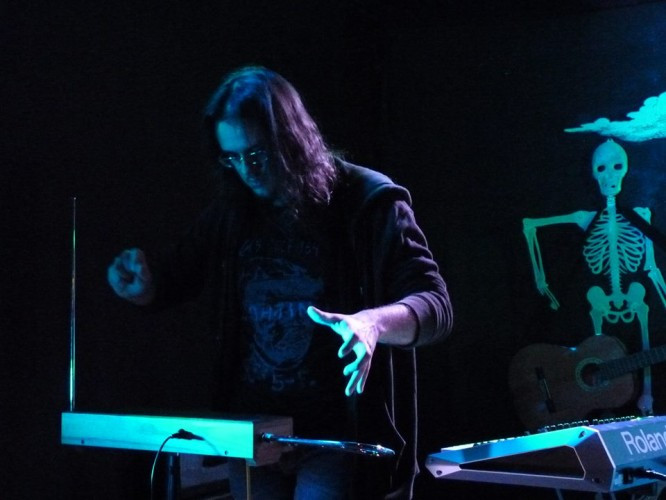
Awesome interview!
This sounds pretty cool, very raw and dirty with splashes of gorgeous, dark melody